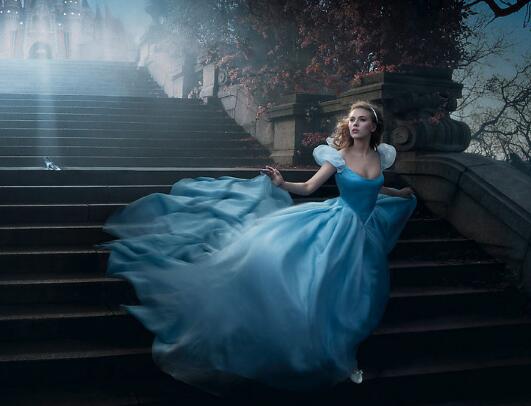
牛虻里的十句经典语句
1. 正是因为这些东西---因为这些虚假同时又带着奴性的人们,这些无知同时又没有思想的神灵----他受尽了侮辱 激情和失望至极的各种折磨。
2. 没有经历过的世界或许是一个让人不愉快的黑洞,不过它完全不会比他抛弃的这一角落更加忧郁和丑恶。
3. 看来无论到了什么地方,生活都是相同的,丑恶 腐朽 毒虫到处都是,充斥着令人耻笑的秘密和黑暗的角落。
4. 想到一个灵魂已经没有了感觉……想欲叫无声,欲哭无泪……他不得不忍耐,忍耐,再忍耐。
5.这个孩子长大以后会是一个可怜的人,对他而言最聪明的事情就是自杀,千万别长大成人。
6.已经死了的人最好还是死去。
忘掉一些事情是不容易的。
假如我是你那个死去的朋友,我就会当……当……当个死人。
还魂的亡魂是个丑陋的幽灵。
7.别担心
失去的其实更多更多……8.我并不信任世俗的道德规则,并且我也不尊敬它们。
9.该我们时我们将会使用大炮,而并非六支破旧的短筒马枪到那时你就会看到我们要开多么大的玩笑。
10.我已经做完了这份工作,给我证实真正做完这份工作的便是死刑。
他们把我杀了,那是由于他们怕我,我的内心还有什么请求呢?请问我能知道您为什么提这个问吗
因为我本人太喜欢牛虻了
您是否也一样
以上是我摘自《牛虻》这本书里的。
《牛虻》的经典语录
1、这个孩子长大以后会是一个可怜的人,对他而言最聪明的事情就是自杀,千万别长大成人。
2、没有经历过的世界或许是一个让人不愉快的黑洞,不过它完全不会比他抛弃的这一角落更加忧郁和丑恶。
《牛虻》中经典段落
在线阅读。
《牛虻》 他们沿着湖边走到一处僻静的地方,坐在一段低矮的石头墙上。
紧挨着他们的旁边长着一丛玫瑰,上面结着猩红的果子。
一两簇迟开的乳白色花儿仍然挂在高处的一根花茎上,带着沉重的雨滴在凄凉地摆动。
在碧绿的湖面上,一只小船在裹着露水的微风中荡漾,白色的风帆无力地抖动。
小船显得轻盈柔弱,就像是一束银白色的蒲公英被扔到了水上。
高处的萨尔佛多山上,某个牧人小屋的窗户敞开着,就像是一只金黄色的眼睛。
玫瑰花垂下头来,在九月里悠闲的白云下浮想连翩。
湖水拍打着岸边的鹅卵石,发出喃喃的低语。
—————————————— “我的孩子,如果你的心中燃起一线新的光明,一个为你的同胞完成某种伟大的工作的梦想,一种为减轻劳苦大众负担的希望,这样你就要留意上帝赐予你的最宝贵恩惠。
所有美好的东西都是他的赐予,只有他才会赐予新生。
如果你已经发现了牺牲的道路,发现了那条通向和平的道路,如果你已经结识了至亲至爱的同志,准备解救那些在暗中哭泣和悲痛的人们,那么你就务必要使自己的心灵免受妒忌和激情的侵扰,要使自己的心灵成为一个圣坛,让圣火在那里永远燃烧。
记住有一个高尚而又神圣的事业,接受这一事业的心灵必须纯洁得不受任何自私的杂念影响。
这种天职也是教士的天职。
它不是为了一个女人的爱情,也不是为了转瞬即逝的片刻儿女私情,这是为了上帝和人民,它是始终不渝的。
” —————————————————— 关于明天早晨的事情,我想让你和马尔蒂尼清楚地明白,我非常快乐,非常知足,再也不能奢求命运作出更好的安排。
告诉马尔蒂尼,说我捎话给他,他是一个好人,一位好同志。
他会明白的。
你瞧,亲爱的,我就知道那些不可自拔的人们替我们做了一件好事,替他们自己做了一件坏事。
他们这么快就重新动用审讯和处决的手段,我就知道如果你们这些留下的人团结起来,给他们予猛烈的反击,你们将会见到宏业之实现。
至于我嘛,我将走进院子,怀着轻松的心情,就像是一个放假回家的学童。
我已经完成了我这一份工作,死刑就是我已经彻底完成了这份工作的证明。
他们杀了我,因为他们害怕我,我心何求
可是我的心里还有一个愿望。
一个行将死去的人有权憧憬他的一个幻想,我的幻想就是你应该明白为什么我对你总是那么粗暴,为何久久忘却不掉旧日的怨恨。
你当然明白是为什么,我告诉你只是因为我乐意写信给你。
在你还是一个难看的小姑娘时,琼玛,我就爱你。
那时你穿着方格花布连衣裙,系着一块皱巴巴的围脖,扎着一根辫子拖在身后。
我仍旧爱你。
你还记得那天我亲吻你的手吗
当时你可怜兮兮地求我“再也不要这样做”。
我知道那是恶作剧,但是你必须原谅这种举动。
现在我又吻了这张写有你名字的信纸。
所以我吻了你两次,两次都没有得到你的同意。
就这样吧。
再见,我亲爱的。
牛虻英文的一些语句 需要英文
书评,不过也有点儿内容介绍。
Book Review: The Gadfly[HARRYROOLAART.COM] - E.L. Voynich (Ethel Lilian), an author virtually unknown to us, published The Gadfly (1904) to rave reviews. Her novel, set in Italy in the 1800's, a tumultuous time of revolt and uprisings, features the hero as a mysterious satiricist hired by revolutionaries to set a nation into revolt. At once a romance, tragedy and heroic story, Voynich leaves us with passionate characters, an excellent plot, and expertly incorporates them into the author's daring and controversial theme; one that shocks and renders this novel’s lasting originality indisputable. In short: if religion is the opiate of the masses, then Voynich’s The Gadfly effectively places its readers in a clinic to “kick the habit”. The book’s title page clearly forewarns us of what is to come; it poses the thematic question: “What have we to do with Thee, Thou Jesus of Nazareth?” Set in and around the year 1846, the story begins in the town of Leghorn, Italy and the tumultuous events surrounding Italy’s Youth Movement and its attempt to liberate itself from the Austrians and the country’s clerical hypocrisy.The town of Leghorn, as this week’s harryroolaart.com readers know, features prominently in other reviews on our site. Historically, British commerce and interests in this Italian port were present for well over a century preceding the events of this novel. In keeping with this, Voynich chose as her main hero a young British student named Arthur Burton.The Gadfly chronicles the events of Arthur’s life as he moves from being a theological student with Padre Montanelli (his father figure) to the life of a satirist, revolutionary, and great enemy of the church. Voynich portrayal of his protagonist (Arthur Burton) and his antagonist (Padre Montanelli) may be clearly seen in the following passages. In the first, we see Arthur’s predilection towards a benevolent world, in the second Montanelli’s view of the world as malevolent:[ARTHUR] … was particularly sensitive to the influence of scenery, and the first waterfall that they passed threw him into ecstasy which was delightful to see; but as they drew nearer to the snow-peaks he passed out of this rapturous mood into one of dreamy exaltation that Montanelli had not seen before. He would lie for hours motionless in the dark, secret, echoing pine-forests, looking out between the straight, tall trunks into the sunlit outer world of flashing peaks and barren cliffs. Montanelli watched him with a kind of sad envy.[MONTANELLI]… sighed. “I used to see those things once.”“Do you never see them now?”“Never. I shall not see them any more. They are there, I know; but I have not the eyes to see them. I see quite other things.”“What do you see?”[Montanelli] pointed to the valley below them. Presently the sun, red as a glowing coal, dipped behind a jagged mountain peak, and all the life and light deserted the face of nature. Straightway there came upon the valley something dark and threatening, sullen, terrible, full of spectral weapons.“Padre!” Arthur rose, shuddering, and drew back from the precipe. “It is like hell.”“No, my son,” Montanelli answered softly, “it is only like a human soul.”What follows must be understood by reading the novel itself. A war erupts within Arthur’s soul, a war between good and evil, a war in which Arthur is deeply drawn into Montanelli’s view of the world while simultaneously battling that view with all of his journalistic, satirical, and physical abilities. The plot incorporates the romance of Arthur and Gemma, a singularly striking woman of integrity, a heroic figure who is not encumbered by the malevolence clouding Arthur’s mind. Gemma may even be considered more heroic than the hero himself. No one who opens this book can fail to be engrossed by the vivid and convincing manner in which each character plays his part and each incident follows the other…as any novel with a good plot must.This truly is a book the power of which cannot be questioned. HARRYROOLAART.COM gives The Gadfly a 4 (out of 5) star **** rating.Ethel Voynich, an English woman, was married to a Polish revolutionary. Although the actual date for publication is disputed (some copies show this date to be 1897, others, 1904), and although she wrote other books, the author was never to repeat the success of this book, her first. The novel was extraordinarily popular in Russia, before and after the Revolution, and in Communist China as well. The ideologies fought for are socialistic, and anti-religious at their core, though the former does not detract from the fact that the book's characters are truly heroic in the rational sense of the word.Recently, it has been reported to us that the book was, in fact, made into a movie by the Russians (with music by Shostakovich), turned into a play, as well as having been made into three operatic versions.
世界名著好句摘抄
1.神要是去跟人作对,那是任何人都难以 (《荷马史诗》)2.生存还是,这是一个值得思考的问题。
(《哈姆雷特》)3.善良人在追求中纵然迷惘,却终将意识到有一条正途。
(《浮士德》)4.认识自己的无知是认识世界的最可靠的方法。
(《随笔集》)5.你以为我贫穷、相貌平平就没有感情吗?我向你发誓,如果上帝赋予我财富和美貌,我会让你无法离开我,就像我现在无法离开你一样。
虽然上帝没有这么做,可我们在精神上依然是平等的。
(《简



